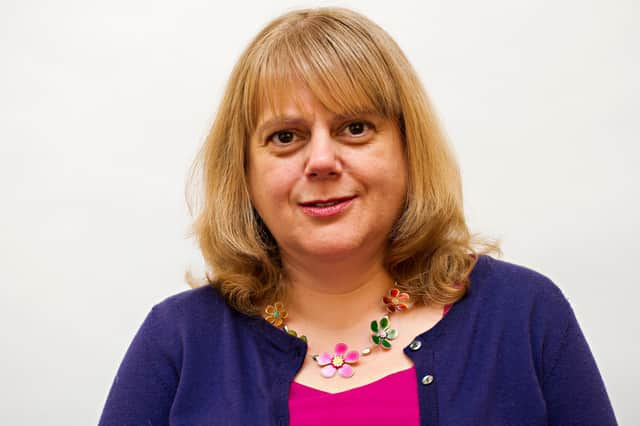Lived experience and peer support are powerful tools that make recovery possible - Lesley Smith


Let’s take a step back - what is it that we really need? We know that there isn’t one answer but is it more of the same or time to do something different? At Scottish Recovery Network we believe in the power of lived experience and peer support. That people have a right to be involved in the communities they are part of and the services they access.
People who experience mental health problems and recovery have expertise that is forged in direct experience. NHS mental health services are often presented as the only route to support – a route often blocked by waiting times and lack of resource. We see peer support as a valuable complement and asset to the supports that are currently available. A way to reduce the burden on services, give people more choice, more access and tap into something really rather special.
Advertisement
Hide AdAdvertisement
Hide AdWe know from our work that people find the benefits of peer support – connecting and sharing with people experiencing something similar to ourselves – extremely helpful and often life-changing. One person told us; “I tried therapy and all the formal stuff, only when I was introduced to peer support did things really start clicking for me.” Another: “It is attending peer support groups and sharing my lived experiences that makes me well.”
Last year we consulted with communities and services across Scotland to understand what was helping them through the pandemic. We learned that people were recognising their strengths from their own recovery. There was a levelling of relationships as people shared what works for them – people were providing peer support to each other.
Peer support is fundamentally about relationships and creating the space to be alongside each other. Focusing on being with people and believing that everyone is an expert on themselves. With a bit of support, encouragement and sharing of what works, we can find our way through our challenges and distressing periods. We hear again and again the value of normalising talking about feelings and distress. Challenging the stiff upper lip of stoicism and getting on with it. Peer support creates spaces for this to happen.
Peer Support works -people tell us it does and there is a growing evidence base to support this. People feel listened to and understood. They feel safe in relationships which are equal and mutual. Sharing what works and is possible brings hope.
Peer support happens in the communities we are part of as well as the more organised peer groups. Networks of peer support groups are increasing online and face-to-face to meet a need for connection and a space to share and be validated.
Scottish Recovery Network also supports the growth of formal volunteer and paid peer roles within mental health services. Where services employ peer workers, they talk about the difference having a peer worker brings to the people they work with and the team as a whole. Having a peer perspective encourages us all to look at things differently and see what our different worldview or training blinds us to. In Scotland we have over 100 peer workers employed in mental health services yet that is only a drop in the ocean.
Our organisation and the people we work with have a vision of peer support being available to everyone when and where they need it. Peer support needs to be invested in both in our local communities as well as the more formal service provisions. People’s voices need to both be included and be part of the solution – peer support is one way.
At Scottish Recovery Network we are building a peer recovery hub and invite you to come and join us. Recovery is possible, peer support is vital and we are building the social movement to prove it!
Find out more about peer support and the Peer Recovery Hub at www.scottishrecovery.net.
Lesley Smith, Network Officer, Scottish Recovery Network
Comments
Want to join the conversation? Please or to comment on this article.